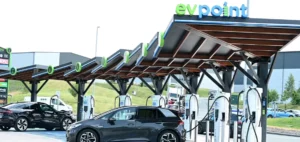UK-based EVC has secured up to £165 million of funding managed by Denham Sustainable Infrastructure (DSI), an arm of Denham Capital. The goal of the investment is to accelerate the delivery of 100,000 EV charging points across the UK by 2027. EVC finances and installs EV charging points, under long-term contractual lease agreements, in “destinations” including hospitality, leisure and retail venues, workplaces and multi-unit residential units.
EVC’s growth plan
EVC’s primary goal is to provide convenient, practical and reliable charging options to its growing customer base. By strengthening EV charging infrastructure at destination, the VCA aims to eliminate the “range anxiety” felt by EV drivers concerned about finding reliable charging points. Projects range from individual chargers to larger EV charging centers and use charge points with capacities ranging from 22 kW to 300 kW. EVC’s fully-funded solutions aim to meet the requirements of the EV industry by providing innovative and scalable charging infrastructure and charging management software.
Personalized services for homeowners
For owners who wish to invest their own capital, EVC offers a managed service, whereby EVC undertakes the installation and operates the EV charger on behalf of the owner. EVC was founded in early 2020 and has attracted a number of key long-term lease customers as it has developed and refined its business model. To date, the company has been funded by Oasthouse Ventures, James Randall, Lucky Gohler and capital raised in 2022 from high net worth individuals.
EVC’s development prospects
The partnership with Denham Sustainable Infrastructure will propel EVC into the next phase of its growth. Nick Ballamy, CEO of EVC, said the investment will help meet pent-up demand in the company’s markets. EVC is seeing strong demand for its electric vehicle charging solutions and plans to deploy its proprietary platform widely to give EV drivers easy access to its reliable network. By giving drivers the confidence to switch to electric, EVC can help the UK achieve its ambitious net zero emissions targets.






















